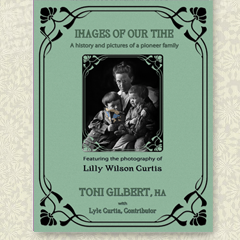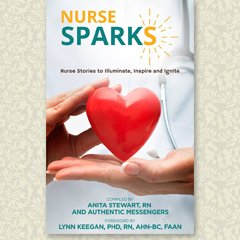



 








 Connect on Facebook to
Connect on Facebook to
Message from the Archetypes

|
|
Food As Cancer Prevention
Eating the right diet could prevent close to one third of all cancer deaths
Statesman Journal Newspaper, Total Health Insert, August 6, 2000
by Toni Gilbert, MA
The latest research suggests you can reduce your risk of several types of cancer simply
by eating the right foods. A diet heavy in such healthy foods as broiled salmon with fresh
lemon, spinach salad with olive oil and garlic dressing and tomatoes fresh from the vine
may reduce your cancer risk. The Harvard School of Public Health released a major new study
declaring that more than half of all cancers could be prevented simply through common sense
lifestyle changes. The report stated that eating the right diet could prevent close to one
third of all cancer deaths. It also stressed the importance of avoiding tobacco and
exercising regularly.
The National Cancer Institute, a special Division of Cancer Prevention and Control is
performing studies on some of the 1,000 or more compounds found in food that may play a
role in discouraging cancer growth. Macronutrients such as antioxidant vitamins and minerals,
folate, and calcium and whole foods such as garlic and soy were among the substances under
study.
A clear picture of an "anticancer diet: has begun to emerge. These cancer-fighting
powerhouses are high fiber fruits and vegetables, and those foods low in fat. The food
you eat is one major determinant of health that is completely in your control. Dr. Andrew
Weil, a Harvard educated physician, has outlined some common sense guidelines to help
you start reducing your risk.
Eat five to nine servings a day of fruits and vegetables. A diet high in fruits
and vegetables, is the foundation of the anticancer diet and is associated with lower risk
in 15 types of cancer, among them ling, cervix, breast, and colon. Fruits and vegetables
are rich sources of natural antioxidants, are full of vitamins and minerals as well as
being high in fiber and low in fat. Scientists are also discovering a host of other
important and powerful phytochemicals including the indoles in broccoli, the lycopene
in tomatoes, the limonene in citrus fruits, and the ellagic acid in grapes and apples
which have cancer protective properties.
Make it your goal to eat a least five to nine servings of fruits and vegetables a day
(to keep the doctor away). You should try varying colors so you have some red, green,
orange, and yellow produce every day. For example, a slice of melon and a glass of orange
juice at breakfast, a spinach salad and an apple with lunch, peeled carrots and a handful
of prunes as snack, corn and pinto beans at dinner and you have eight servings. Whenever
possible select organic produce because toxic agrichemicals diminish the benefits of
these healthful foods.
Eat a high fiber diet. The benefits of high fiber intake and its role in
fighting colon cancer have been known since the 1970's. Fiber, the indigestible part of
the food we eat, sweeps through the intestinal tract cleaning and reducing the amount of
toxic substances that remain in the gut. Newer studies suggest that a high fiber diet may
prevent breast and prostate cancer. Again fruits and vegetables, especially whole greens,
and legumes are the foods of choice for fiber.
Cut back on fat. An increased risk for prostate, colon, and breast cancer has
been linked to a diet high in fat. The kind of fat found in animal foods such as meat, butter
and whole milk as well as in margarines and vegetable shortenings seems to be the most
closely related to cancer risk. Oils found in corn and safflower oil, as well as in products
make from these oils has also been linked to an increased incidence of both prostate and
breast cancer. Make an effort to cut back on saturated fat by reducing or eliminating meat,
and whole dairy products. Switch to low or nonfat dairy products.
Olive oil is fat that doesn't seem to pose a cancer risk, and may have other health
benefits. One should rid their kitchens of all oils except olive oil.
Eat enough folates. Folic acid, found in green leafy vegetables, brewer's
yeast, dried beans, and citrus is thought to play an important role in preventing cervical
and colon cancers.
Some studies suggest that folic acid, a B-vitamin, may be better absorbed in the body
through supplementation with a vitamin pill or with foods that have been fortified such as
some cereals and breads.
Get your recommended intake of calcium. This mineral appears to bind up bile
acids, which are believed to contribute to the growth of cancer in the intestinal cells.
Calcium rich foods include calcium fortified orange juice, sea vegetables, non-fat yogurt,
sesame seeds, collards, and calcium set tofu. You may choose to take calcium citrate, which
is the most absorbable form of supplementation.
Learn to love soy products. Studies suggest that certain compounds in soy foods called
isoflavones may both inhibit the production and absorption of estrogen in women and
testosterone in men, which can prevent tumors from growing the new blood vessels necessary
for a cancer cell's survival.
One should try to eat at least two ounces of this cancer fighting food every day. Sources
include reduced fat tofu, tempeh, soy flour, and dried soybeans. You can replace some of the
flour in your favorite recipes with soy flour (1/8 cup per cup for rising dishes, 1/4 cup per
cup in nonrising).
Eat more garlic. Garlic has specific power as a cancer fighter. In studies some
compounds in garlic appear to neutralize carcinogens; others seem to inhibit enzymes that
encourage the spread of cancer cells. For the best results from garlic eat a few cloves a
day added to your recipes. If you chose to add garlic as a supplement, the most beneficial
is the "enteric coated" pills.
Replace red meat with fish; Cut back on red meat consumption. Researchers don't
know what it is about meat that causes cancer but long term studies found that those who ate
red meat often (five or more times/week) had four times greater risk of colon cancer and two
times greater risk of prostate cancer than those who ate red meat less than once a month.
Omega-3 polyunsaturated fatty acids found in oily fish such as sardines and salmon are
considered to have small but significant preventative effects on several types of cancer.
Vary your diet. The best way to get all your beneficial nutrients is to eat a wide
variety of fresh foods. Another reason is to minimize your consumption of the natural
carcinogens found in some vegetables, including button mushrooms, celery, and peanuts.
Research is evolving in this field quickly, so stay open to new developments.
Copyright 2003-2018 Toni Gilbert. All Rights Reserved.
Site Maintained by KLH Technology Solutions.
| |
|
|
